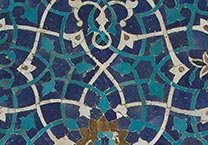Program in Islamic Law Lecture :: Marion Katz, “Wives, Housework, and the Changing Boundary between Islamic Law and Ethics”
Posted on February 11, 2019
Marion Katz , Professor of Middle Eastern and Islamic Studies, New York University
Lecture: “Wives, Housework, and the Changing Boundary between Islamic Law and Ethics”
Recent years have seen a rise in the study of Islamic ethics, from the “ethical turn” in the anthropology of Islam to the foundation of a Journal of Islamic Ethics. The relationship between Islamic law and ethics has also become a focus of attention on both the historical and the constructive levels, with some scholars equating the two and others (including some Muslim feminists) arguing that legal thought must be reconstructed to better reflect the ethical concerns of the revealed sources. This paper argues that the issue of domestic labor is one where legal scholars historically perceived a disjuncture between what they understood the law to require and what they understood to be morally good. Historical shifts in doctrine in this area have been interpreted as reflecting the evolution of social practice in Muslim communities; this paper argues that they can also be interpreted in terms of the variable relationships between scholars’ legal and ethical projects. Lunch will be provided. RSVP to [email protected].

